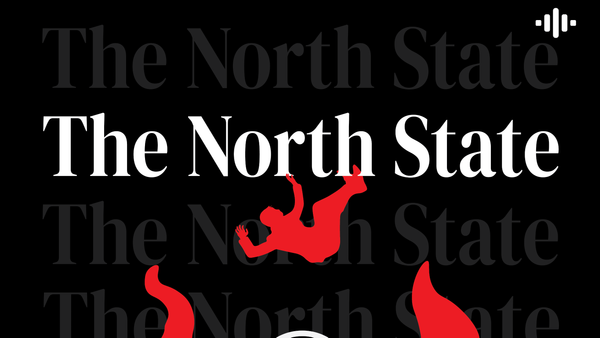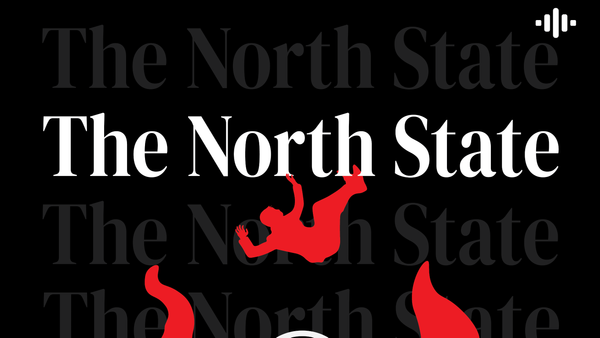Anti-Palestinian Bias Is Quietly Dividing News Rooms
Blatant and favourable coverage of Israel is causing a rift behind the scenes

It’s often hard to gain transparency in how our news rooms function. Most of the agencies that gather, disseminate and publish news in this country are private corporations. Except in the rare occasion we obtain insight through leaks, anonymous interviews and diligent investigative reporting, we’re often left in the dark as to how our news rooms conduct themselves.
Thanks to a bombshell investigative report by Emma Paling for The Breach, we now have a look into the process for how the news room at CTV in covers Palestine issues. Paling obtained internal emails and conducted interviews with “several employees” at CTV about the outlet's coverage. What she reported was indicative of the corporate pressure to silence the Palestinian perspective in journalism. CTV said employees were not to use the word “Palestine,” denigrated Palestinian voices and pressured journalists to report favourably towards Israel. The agency also directed reporters not to cover pro-Palestine rallies unless “significant disruption to the public” occurs, a move that one journalist called “cowardly and one-sided.” All of the journalists interviewed for the story remained anonymous for fear of facing career consequences.
The report was a rare glimpse into the inner-workings of a newsroom reporting on Palestine. But it’s far from the only one.
One day after The Breach article was published, Al Jazeera published an article about similar sentiments from journalists at BBC News. The letter, signed by “eight UK-based journalists employed by the corporation,” was intended to raise issues about the service’s biased coverage of Israel and Palestine. These journalists also requested anonymity, as they feared reprisal too. “Thousands of Palestinians have been killed since October 7,” the letter read. “When will the number be high enough for our editorial stance to change?”
Unfortunately, the journalists eventually opted not to send the letter to executives, “believing such a move was unlikely to lead to meaningful discussions.”
The Catch reported last week on the scramble by Jesse Brown and Canadaland to separate his dishonest framing from that of the company, stating Brown’s views were not indicative of the views of Canadaland. However successful that attempt actually ended up being, it’s clear there was at least some pressure from within the company against the views of Brown.
After Zahraa Al-Akhrass was fired from Global News for posting pro-Palestinian messaging on her personal social media, she was interviewed at TRT World. She addressed the support received from journalists in the industry after she made her firing public.
You would be surprised if I gave you names of the journalists, on-camera personalities, big names in the industry in the West who reached out in support and told me they were proud and they showed solidarity with Palestine. What I have done might be unique, but this is something literally all journalists are suffering from in Canada. Quite a good number of colleagues in different newsrooms reached out and showed support. The situation must change.
As the firing of Al-Akhrass shows, the fear of retaliation is a very real one. In another instance, Yara Jamal, a former web writer and production assistant at CTV Atlantic was fired after attending a pro-Palestine protest in Halifax. Her crime? She said in the occupied region, “Jews can continue to exist, the Zionist ideology cannot.” And that Israel, “The state, no, cannot exist.”
This retribution is not a new phenomenon, either. After Israel bombarded Gaza in 2021, reporters at places like CBC News and the Australian Broadcasting Corporation faced consequences for signing letters asking for fairer coverage of the conflict.
Personally, through conversations with peers, I can also confirm that there are reporters who are disgusted with the anti-Palestinian bias in news rooms. No identifying details will be conveyed, as these were casual conversations. As such, admittedly, this is anecdotal evidence.
But the anecdotal evidence I’ve encountered echoes these reports of divided news rooms and internal support for reporting the Palestinian perspective. Reporters are fed-up with the blatant distortion of coverage that downplays popular sentiment supporting Palestine, or elevates Israeli voices to a level of support it doesn’t actually have.
The Catch has covered the blatant bias against Palestine by outlets like CBC News and CTV News, as well as the omission of mentioning these protests by news outlets like CP24. This isn’t to say The Catch scooped The Breach by any measure. Observing the coverage from a materialist perspective, which is what The Catch did, was confirmed by diligent reporting. Obviously, analysis is bolstered by the gathering of information. The Breach article by Paling is invaluable on its own and is one of the best pieces of reporting on news room bias released in recent months. But it’s also proof-positive that The Catch has covered something that a good deal of journalists in the industry have already witnessed, or been subjected to: the pressures of ideology and corporate interests on reporting.
Even so, the utility of this quiet phenomenon remains to be seen. There’s very little that can be changed if this sentiment is kept from the public. So if you, or someone you know, is a worker in a newsroom, who is with a union, options need to be explored through that channel. If there is no union, think about forming one. It’s unreasonable to ask every journalist to individually speak up when its clear that the consequences are very real for those that do. Contacting journalists at more critical outlets to report about news room bias witnessed should also be done.
However, if we want to see a change in the coverage we see, we need to make it impossible to sweep this bias under the rug. That comes from pressure on the streets, to be sure, but the pressure has to be internal as well.
The division in news rooms is quiet and hidden, but it’s there. We see the true power of systemic pressure at moments like this. The key is to not let up. At the very least, these outlets that profess an intention to inform the public should be made to answer for their decisions.





